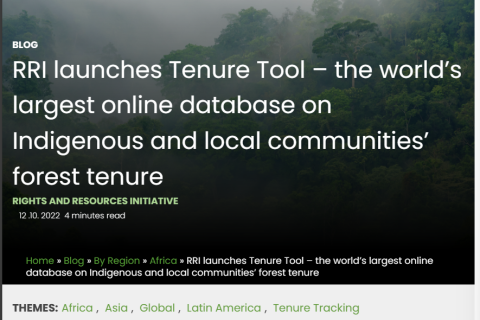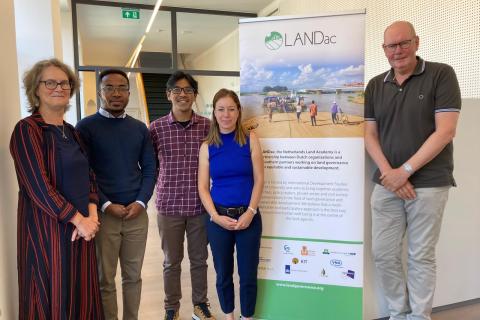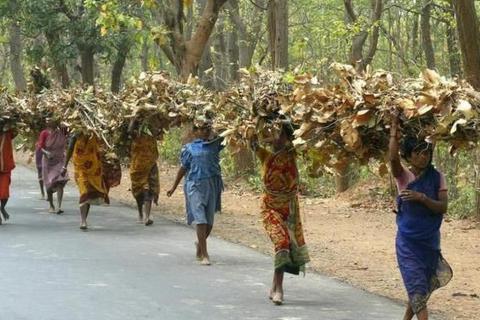RI launches Tenure Tool – the world’s largest online database on Indigenous and local communities’ forest tenure
RRI is excited to announce the launch of its new online Tenure Tool. This platform, hosted on RRI’s website, will give rightsholders, researchers, activists, policymakers, and the public free and easy access to qualitative and quantitative data on the forest tenure rights of Indigenous Peoples, Afro-descendant Peoples, local communities, and the women within those communities.
The Tenure Tool houses the largest and most comprehensive dataset to date on Indigenous, Afro-descendant, and local communities’ forest tenure rights, drawing on longitudinal data sets maintained and regularly updated by RRI.












